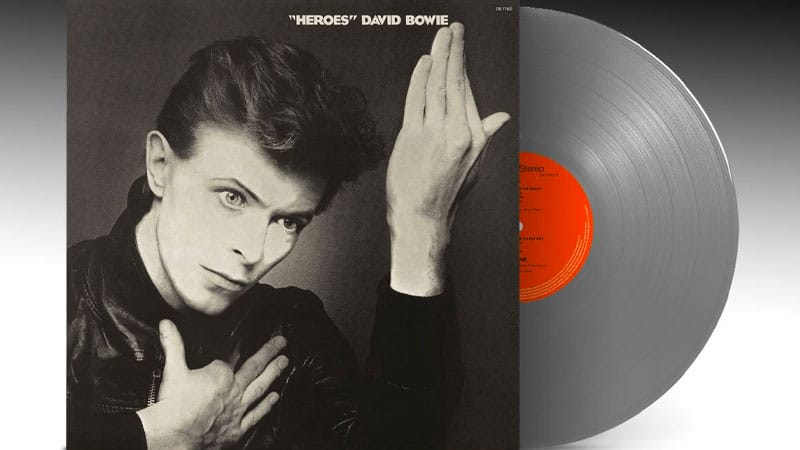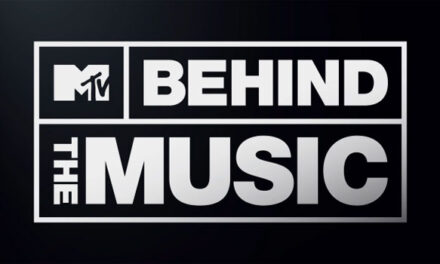Tom Petty and Tupac Shakur Estates, Soundgarden, Hole and Steve Earle are among the artists in the suit
Universal Music Group (UMG) has been hit with a $100 million class action lawsuit for master recordings destroyed during a 2008 fire on the Universal Studios Hollywood backlot. The suit stems from a New York Times article last week that uncovered up to 500 thousand master recordings from some of the most popular artists of the 20th and 21st Century were included in an early morning blaze that ripped through a 22,320-square-foot warehouse housing these masters on the backlot of NBCUniversal Studios in Hollywood on June 1, 2008. UMG initially claimed their losses were minimal, but internal notes stated otherwise and the company kept the news under wraps for more than a decade.
Soundgarden, Tom Whalley on behalf of the Afeni Shakur Trust that oversees Tupac Shakur’s estate, Tom Petty’s ex-wife Jane Petty, Hole and Steve Earle filed the suit in federal court on Friday (June 21st). The plaintiffs are seeking to recover “50% of any settlement proceeds and insurance payments received by UMG for the loss of the Master Recordings, and 50% of any remaining loss of value not compensated by such settlement proceeds and insurance payments.” UMG reportedly valued its losses at $150 million during 2009 legal action against NBC for the fire.
At the time of the fire, UMG reps claimed their losses were minimal, but sources recently shared the company didn’t share the full extent of their losses for personal gain.
“UMG did not protect the Master Recordings that were entrusted to it. It did not take ‘all reasonable steps to make sure they are not damaged, abused, destroyed, wasted, lost or stolen,’ and it did not ‘speak up immediately [when it saw] abuse or misuse’ of assets. Instead, UMG stored the Master Recordings embodying Plaintiffs’ musical works in an inadequate, substandard storage warehouse located on the backlot of Universal Studios that was a known firetrap. The Master Recordings embodying Plaintiffs’ musical works stored in that warehouse were completely destroyed in a fire on June 1, 2008,” the lawsuit reads.
It continues, “UMG did not speak up immediately or even ever inform its recording artists that the Master Recordings embodying their musical works were destroyed. In fact, UMG concealed the loss with false public statements such as that ‘we only lost a small number of tapes and other material by obscure artists from the 1940s and 50s.’ To this day, UMG has failed to inform Plaintiffs that their Master Recordings were destroyed in the Fire.
“Even as it kept Plaintiffs in the dark and misrepresented the extent of the losses, UMG successfully pursued litigation and insurance claims which it reportedly valued at $150 million to recoup the value of the Master Recordings. UMG concealed its massive recovery from Plaintiffs, apparently hoping it could keep it all to itself by burying the truth in sealed court filings and a confidential settlement agreement. Most importantly, UMG did not share any of its recovery with Plaintiffs, the artists whose life works were destroyed in the Fire — even though, by the terms of their recording contracts, Plaintiffs are entitled to 50% of those proceeds and payments.
“Plaintiffs bring this class action on behalf of themselves and all similarly situated recording artists, and their heirs, successors or assigns, to recover (1) their contractual entitlement to 50% of any settlement proceeds and insurance payments received by UMG for the loss of the Master Recordings, and (2) 50% of any remaining loss of value not compensated by such settlement proceeds and insurance payments.”
Despite the many losses, a major label attorney tells Variety that the the lawsuit faces many challenges since the master recordings were owned by UMG and not the artists themselves. “The issue is: Who owns the thing that was lost? I can’t say there is no recording agreement in history that says the physical master tape is owned by an artist, but in the vast majority of recording agreements, it’s owned by the record company,” the attorney says. “So even if the copyright in the sound recording reverted to the artist, the physical master tape is different — in almost all instances, it’s owned by the record company, and even if the recording agreement didn’t specify who owns it, because it was paid for the record company there’s a very strong argument that the record company owns it.”
An unnamed financial analyst confers the attorney’s remarks, stating, “The harm was caused to Universal — the fire damaged their property. And if there are any artists whose [ownership of the masters] will revert to them in the next decade or so, they could try to seek some sort of compensation — but then I assume that in any successful claim there may be an opportunity for Universal to claw that [money] back from NBC, who owned the facility.”
Earlier this week, UMG Chairman and CEO Lucian Grainge wrote an internal memo to his staff, sharing, “Let me be clear: we owe our artists transparency. We owe them answers. I will ensure that the senior management of this company, starting with me, owns this.”
The NY Times investigation says the fire destroyed recordings by Benny Goodman, Cab Calloway, the Andrews Sisters, the Ink Spots, the Mills Brothers, Lionel Hampton, Ray Charles, Sister Rosetta Tharpe, Clara Ward, Sammy Davis Jr., Les Paul, Fats Domino, Big Mama Thornton, Burl Ives, the Weavers, Kitty Wells, Ernest Tubb, Lefty Frizzell, Loretta Lynn, George Jones, Merle Haggard, Bobby (Blue) Bland, B.B. King, Ike Turner, the Four Tops, Quincy Jones, Burt Bacharach, Joan Baez, Neil Diamond, Sonny and Cher, the Mamas and the Papas, Joni Mitchell, Captain Beefheart, Cat Stevens, the Carpenters, Gladys Knight and the Pips, Al Green, the Flying Burrito Brothers, Elton John, Lynyrd Skynyrd, Eric Clapton, Jimmy Buffett, the Eagles, Don Henley, Aerosmith, Steely Dan, Iggy Pop, Rufus and Chaka Khan, Barry White, Patti LaBelle, Yoko Ono, Tom Petty and the Heartbreakers, the Police, Sting, George Strait, Steve Earle, R.E.M., Janet Jackson, Eric B. and Rakim, New Edition, Bobby Brown, Guns N’ Roses, Queen Latifah, Mary J. Blige, Sonic Youth, No Doubt, Nine Inch Nails, Snoop Dogg, Nirvana, Soundgarden, Hole, Beck, Sheryl Crow, Tupac Shakur, Eminem, 50 Cent and the Roots.
The report also states that tens of thousands of masters by artists largely forgotten across gospel, blues, jazz, country, soul, disco, pop, easy listening, classical, comedy and spoken-word may also no longer exist.
Following the public outing, UMG shared that they take music preservation seriously.
“Music preservation is of the highest priority for us and we are proud of our track record. While there are constraints preventing us from publicly addressing some of the details of the fire that occurred at NBCUniversal Studios facility more than a decade ago, the incident – while deeply unfortunate – never affected the availability of the commercially released music nor impacted artists’ compensation. Further, the story contains numerous inaccuracies, misleading statements, contradictions and fundamental misunderstandings of the scope of the incident and affected assets. In fact, it conveniently ignores the tens of thousands of back catalog recordings that we have already issued in recent years – including master-quality, high-resolution, audiophile versions of many recordings that the story claims were ‘destroyed.’ And it even goes so far as to praise some of our initiatives but does not attribute them to us.”
They continue, “UMG invests more in music preservation and development of hi-resolution audio products than anyone else in music. In the intervening years, UMG has made significant investments – in technology, infrastructure and by employing the industry’s foremost experts – in order to best preserve and protect these musical assets and to accelerate the digitization and subsequent public availability of catalog recordings. In the last five years alone, we have more than doubled our investment in storage, preservation and metadata enrichment while developing state-of-the-art systems to support our global efforts around capturing, preserving and future-proofing our many media assets. Additionally, the company has initiated a global effort to increase the availability of ‘out of print’ and deep catalog recordings through a range of initiatives.”
The suit comes after attorney Howard King, partner in King, Holmes, Paterno & Soriano, confirmed that “more than 10 but fewer than 100 clients” would be seeking damages for the loss.
“We have many very concerned clients This has a potentially huge impact on their future, coupled with the rather disturbing fact that no one ever told them that their intellectual property may have been destroyed. There is a significant amount of discussion going on, and there will be formal action taken.”
More details as it becomes available.




